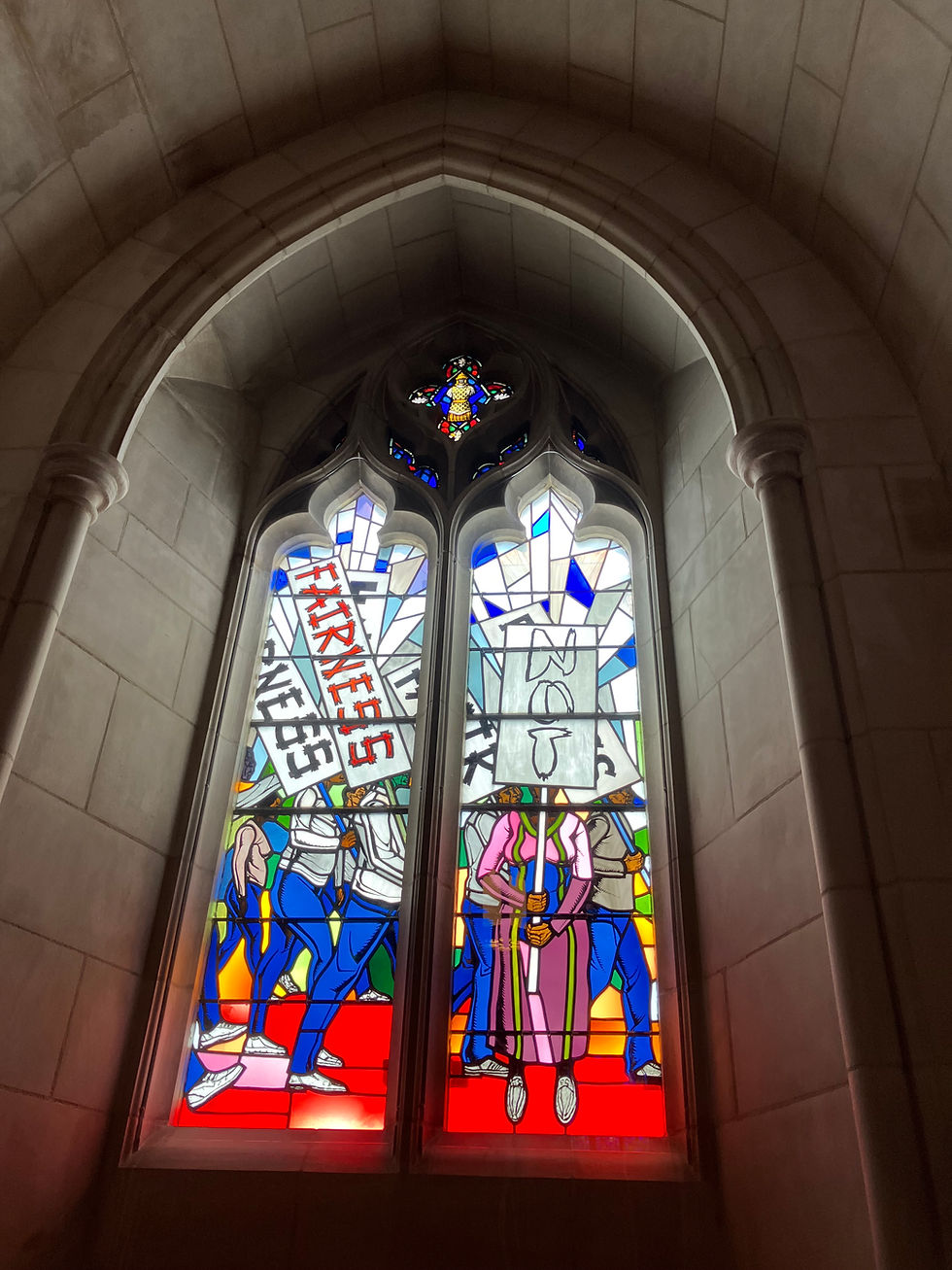Fully Human or Not?
- Susan Cartmell
- Apr 11, 2022
- 3 min read

Anyone who thinks Jesus was not political does not really understand what’s going on in Holy Week. When Jesus came to Jerusalem he was provoking the Romans. Perhaps he knew you could only go so far talking about the lilies of the field on a hillside in Galilee. You could only talk about God’s reign for so long. So, as Jesus made a statement by going to Jerusalem to demonstrate what he really meant. John Dominic Crossan and Marcus Borg explained this in their book, The Last Week.
One day, just before Passover Jesus planned a street demonstration. Demonstrations aren’t neutral. They are usually more than just exercises in freedom of speech. They are pointed protests meant to challenge the status quo. So, Jesus comes to the Holy City to bring people out into the streets. He chooses the very day when Pilate, the Governor of Judea, will be entering the city from the opposite gate. Pilate also was making a demonstration on his way into Jerusalem. The city was crowded with people from all over the Middle East who’d come to celebrate Passover, when the Jews remember that God freed the Hebrews from slavery. Pilate worried that Passover could easily inspire an armed uprising in Roman-occupied Jerusalem.
So, Pilate entered Jerusalem at the end of a procession of heavily armed soldiers, mounted on a war stallion, the kind of horse that scares people. His whole message was “Be careful, and be very afraid.” Authoritarian rulers stage these demonstrations whenever they are trying to consolidate their power. Jesus knew what Pilate was up to; he did the same thing every year. Christ came into the city poking fun at Pilate, riding a young donkey, his feet dragging in the dirt and the crowds got the joke. They recognized that Jesus was spitting in Pilate’s eye, and they loved him for it. When those crowds supported Jesus they took the same risks that people do today when they attend demonstrations in Taiwan or Moscow. They took a risk. Why? Because they believed in Jesus when he said, “Don’t be afraid; you belong to God’s kingdom, not Rome’s.” A lot happened that week in Jerusalem, and things got much more risky, but Pilate’s kind of power didn’t win in the end.
It’s a vital lesson but one we have to keep learning again and again. I don’t know what will happen in Ukraine this Holy Week. Many people will undoubtedly suffer. But one lesson we have learned is that military might alone is not as fearful as we thought. The Ukrainians have proved that human decency and raw grit can make the difference. Processions of tanks have failed. Putin’s rattling sabers have only succeeded in uniting NATO like never before. Putin has brought the world together in shared loathing for him. In a complex time, still battling a long pandemic, the world has coalesced to support an underdog people.
Coming out of this pandemic, it is beginning to dawn on all of us that we now need to choose what kind of world we want. The choice is the same as it was when Jesus rode into Jerusalem. Do we follow the way of brute force and intimidation, or the way of humanity and beloved community? Do we tolerate a world where the mighty subjugate the weak or do we come together in defense of due process, self-determination and human freedoms of all kinds? Our decisions now hold the potential to be turning points in history.
In her blog today Diana Butler Bass includes a quote from Dr. King.
“We have inherited a large house, a great ‘world house’ in which we have to live together — black and white, Easterner and Westerner, Gentile and Jew, Catholic and Protestant, Moslem and Hindu — a family unduly separated in ideas, culture, and interest, who because we can never again live apart, must learn somehow to live with each other in peace.”
(MLK: Where Do We Go From Here: Chaos or Community?, 1967)
Bass says “The kingdom of God. The beloved community. These aren’t just idealistic hopes. They must be our future.”
The people who tell you Jesus was not political are frightened. At some level, they know, because we all know, especially this week, that Jesus was not fooling around. He was in this struggle for keeps. When you are that clear, you become edgy, you run the distance, and you make the ultimate sacrifice, if needed. Jesus realized he couldn’t live with himself unless he kept showing us in word and deed that if we all allow the Romans of the world to call the shots, we sacrifice too much that makes life good. We forfeit our humanity.
That’s the decision we all face in every generation and in each of our lives, whether we will be fully human, or not.




Thank you for sharing this. I had never considered that Jesus’s triumphant ride was such a specific jab at the hierarchy.